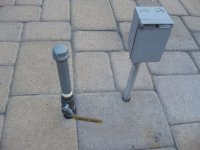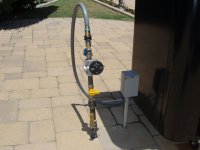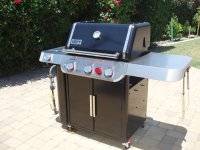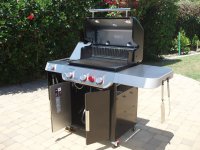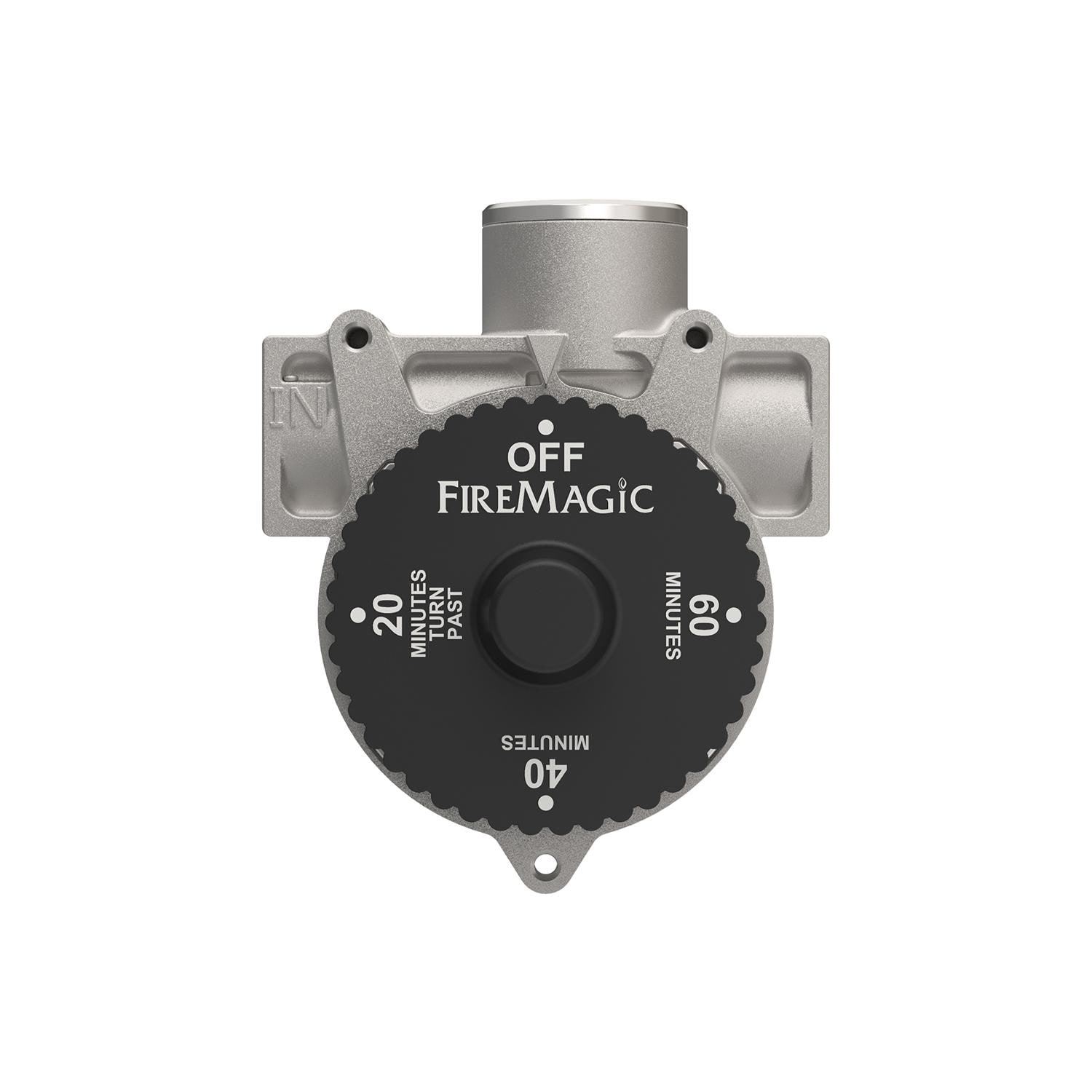True Confession: I have accidentally drained the propane tank by forgetting to shut off the grill after the food is cooked. It has happened more than once. Usually it happens when I turn up the burners and bring in the grilled food. I say to the family, "Remind me to turn off the grill in ten minutes" instead of setting a timer. Quoting Rocky, "That trick never works!"
Our new grill will run on natural gas. I do not want to run it without an automatic gas shutoff timer. We bought a FireMagic 1 hour timer at a local store (BBQ Grill Outlet in Santa Ana). Now I have to figure out the best way to install it. My plan is to unscrew the long hose and put the timer somewhere in or on the cabinet. I would need fittings or hoses to go from the timer to the gas input on the grill, and an adapter to connect the hose to the inlet side of the timer.
Here are my questions:
1. SAFETY: Can I rely on the FireMagic automatic gas shutoff timer as the daily use valve for the grill, or do I need an extra valve before the timer to serve that function?
Background: Our gas line has one valve where the pipe comes out of the pavement. There is no other cutoff valve at the house or gas meter for that line, and there is no easy way to retrofit one. I am not sure it is a good idea to use the pavement valve as the primary grill valve every time I cook, and it would be inconvenient.
-> Can I leave that pavement valve open and rely on the timer (and the Weber Genesis gas valves) to prevent gas leaks?
2. Where did you put your gas shutoff timer? How did you mount it?
3. Did you consider using a "Y" and two valves to split the gas line, running one branch through the timer, with the other branch a bypass? The bypass would be used in case the timer fails or you want longer cooking times without resetting the timer.
-> Are those timers reliable enough that a bypass is more trouble than it is worth?
4. What problems and pitfalls am I likely to encounter?
Yes, I know there will be more fittings to test for leaks. Anything else?
Our new grill will run on natural gas. I do not want to run it without an automatic gas shutoff timer. We bought a FireMagic 1 hour timer at a local store (BBQ Grill Outlet in Santa Ana). Now I have to figure out the best way to install it. My plan is to unscrew the long hose and put the timer somewhere in or on the cabinet. I would need fittings or hoses to go from the timer to the gas input on the grill, and an adapter to connect the hose to the inlet side of the timer.
Here are my questions:
1. SAFETY: Can I rely on the FireMagic automatic gas shutoff timer as the daily use valve for the grill, or do I need an extra valve before the timer to serve that function?
Background: Our gas line has one valve where the pipe comes out of the pavement. There is no other cutoff valve at the house or gas meter for that line, and there is no easy way to retrofit one. I am not sure it is a good idea to use the pavement valve as the primary grill valve every time I cook, and it would be inconvenient.
-> Can I leave that pavement valve open and rely on the timer (and the Weber Genesis gas valves) to prevent gas leaks?
2. Where did you put your gas shutoff timer? How did you mount it?
3. Did you consider using a "Y" and two valves to split the gas line, running one branch through the timer, with the other branch a bypass? The bypass would be used in case the timer fails or you want longer cooking times without resetting the timer.
-> Are those timers reliable enough that a bypass is more trouble than it is worth?
4. What problems and pitfalls am I likely to encounter?
Yes, I know there will be more fittings to test for leaks. Anything else?

